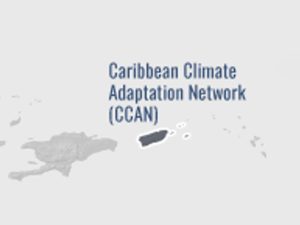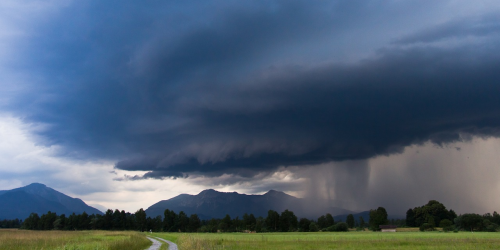CPO’s Climate Adaptation Partnerships program, formerly the Regional Integrated Sciences and Assessments (RISA) program, is announcing one 5-year CAP/RISA team in a new region in Fiscal Year 2022 (FY22). The award will advance equitable adaptation in the U.S. Caribbean region through sustained regional research and community engagement. CAP/RISA teams focus on multiple climate and society issues, and develop a set of interconnected projects that build the capacity of regional partners to act on those issues. The competitively selected CAP/RISA team totals $6,037,4681 in a cooperative agreement over the five-year period.
About CAP/RISA


The CAP/RISA program supports sustained, collaborative relationships that help communities build lasting and equitable climate resilience. Funded by 5-year cooperative agreements with NOAA, the work is accomplished by teams of research institutions, nonprofit organizations, and state/local/Tribal governments in multi-state regions. CAP/RISA teams engage in a variety of applied and co-developed research and partnerships with communities.
A central tenet of the CAP/RISA program is that learning about climate adaptation and resilience is facilitated by and sustained across a wide range of experts, practitioners, and the public. Learning about and doing adaptation happens within social contexts. As such, the CAP/RISA program supports networks of people working together to plan for and adjust to change using science and local knowledge.
All CAP/RISA teams incorporate the principles of justice, equity, diversity, and inclusion into team composition, team management and decision-making, focal areas for research and engagement, geographies of practice, and in the approaches employed. CAP/RISA is a covered program under the White House Justice 40 Initiative.
The new team2 in a new region funded by the CAP/RISA program in FY22 is:
[U.S. Caribbean] Caribbean Climate Adaptation Network (CCAN): Building equitable adaptive capacities of the US Virgin Islands and Puerto Rico
This US Caribbean CAP/RISA team seeks to enhance and expand partnerships through the development and convening of stakeholders in Puerto Rico (PR) and U.S. Virgin Islands (USVI). The team will utilize a human-centered design, bringing together impacted community and government stakeholders, and multidisciplinary scientists to develop and co-produce community climate adaptation capacities, strategies, and actions that build on collectively produced insights and realistic locally grounded scenarios. The proposed knowledge-action network is designed to help build adaptive capacities for future climate extremes, plan responses to cascading climate hazards and governance crises. The proposed work will focus on enhancing program management and leadership through the building of internal capacity. The team’s goal is to enable effective decision-making that supports building just and equitable resilience in the USVI and PR, and their focus will be to address climate hazards related to extreme rainfall, extreme heat, drought, landslides, and coastal and riverine flooding. By utilizing a human-centered design approach, the network will develop effective and scalable climate actions. This project will utilize NOAA and other data products and tools to increase local climate adaptive capacity and resilience in underserved communities. It will increase the capacity in Minority Serving Institutions in both PR and USVI and with project partners to support and sustain education, research, and professional development in NOAA mission areas. The project will engage communities that are typically underrepresented in the U.S. Science, Technology, Engineering, and Math (S.T.E.M.) workforce, in policymaking and in decision-making.- Lead PI: Pablo Méndez-Lázaro, University of Puerto Rico Medical Sciences Campus / USDA Forest Service
- Co-PIs:
- Tischa Muñoz-Erickson, USDA Forest Service
- Mimi Sheller, Worcester Polytechnic Institute
- Greg Guannel, University of the Virgin Islands
- Frank Muller-Karger, University of South Florida
- Kim Waddell, University of the Virgin Islands
- K Stephen Hughes, University of Puerto Rico, Mayaguez
- Eric Harmsen, University of Puerto Rico, Mayaguez
- Carlos Ramos-Scharrón, University of Texas, Austin
- Jorge E. González, New York University
- Masoud Ghandehari, New York University
- Patricia Chardón-Maldonado, Caribbean Coastal Ocean Observing System
1The funding will be distributed over the life of the projects and future-year funding is conditional on appropriations.
2 At the time of publication, all awards may not have been accepted by recipient institutions.





